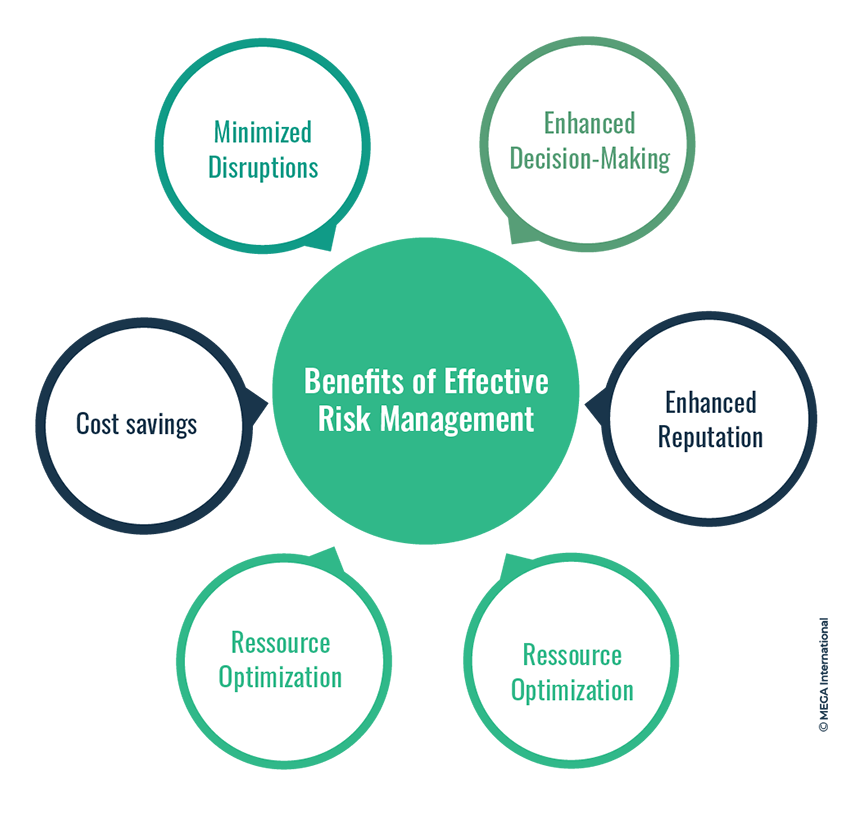Exploring the Sustained Benefits and Importance of Risk Management for Entrepreneurs
Exploring the Sustained Benefits and Importance of Risk Management for Entrepreneurs
Blog Article
The Crucial Importance of Risk Management in Getting Organizational Objectives
This is where Risk Management actions in, providing a structured technique to determining, assessing, and mitigating prospective obstacles to advance. As we discover the crucial role of Risk Management in achieving organizational objectives, one can not help yet ask yourself: how does this translate right into real-world success?
Recognizing the Principle of Risk Management in Company

The Indispensable Duty of Risk Management in Strategic Planning
Integrating Risk Management right into strategic planning serves as a secure for companies, securing their long-lasting plans with a solid structure of preparedness and strength. It operates as the organization's radar, spotting prospective risks and susceptabilities that can interrupt the course towards accomplishing their specified objectives. Risk Management offers a structure for preparing for uncertainties and creating suitable feedbacks, ensuring the organization's survival and success even when faced with hardship. By incorporating Risk Management right into tactical preparation, organizations can change these uncertainties into opportunities for growth and technology. This tactical interweaving of Risk Management cultivates versatility, making organizations a lot more robust and enabling them to navigate the ever-changing business landscape with confidence. Subsequently, Risk Management ends up being a vital device in tactical planning, critical in protecting lasting success.

Techniques for Identifying, Assessing, and Prioritizing Dangers
Browsing the facility landscape of risks needs the application of specific methods for their identification, evaluation, and prioritization. The process begins with Risk recognition, utilizing tools such as SWOT evaluation, which helps in pinpointing potential hazards and chances. Next, Risk assessment is carried out to establish the potential impact and chance of each Risk. Devices such as Risk matrices and impact-probability graphes are used for this. Ultimately, risks are prioritized based on their possible impact and possibility, allowing companies to focus their resources on critical risks. This organized technique guarantees a detailed understanding of the Risk landscape, enabling organizations to make educated decisions and effectively manage dangers to achieve their goals - importance of risk management.
Protecting Organizational Operations Through Efficient Risk Management
In business landscape filled with uncertainties, effective Risk Management plays an essential duty in safeguarding organizational operations. It acts as a protective shield, alleviating the pop over to this web-site negative impacts of prospective threats and guaranteeing the smooth performance of all processes. By identifying and evaluating potential risks, Risk Management allows companies to develop robust backup plans. This precautionary technique aids in keeping operational security, even when faced with unanticipated situations. Essentially, Risk Management is the lifeline that keeps the organizational operations afloat among stormy waters. It guarantees not just the survival but the sustainable growth of an organization, making it a vital device in accomplishing service goals. Hence, companies need to purchase detailed Risk Management methods to safeguard their operations.

Converting Potential Risks to Opportunities: The Power of Risk Management
A proactive approach to risk Management involves identifying, evaluating, and focusing on risks to develop techniques that turn them right into potential advantages. Thus, by leveraging the power of Risk Management, companies can not only protect their operations but also stimulate development and attain their goals in an uncertain service setting.
Situation Studies: Success Stories of Risk Management Driving Service Objectives
Successful execution of Risk Management techniques has generated remarkable results in different services, underscoring the benefits of this strategy. International firms like Microsoft and Google, for circumstances, have leveraged Risk Management to lessen hazards and make use of chances, driving their service purposes forward. These instances illustrate use this link how effective Risk Management can not just steer organizations clear of possible mistakes but additionally guide them towards their tactical objectives.
Verdict
In final thought, Risk Management is fundamentally vital in attaining business objectives. By including Risk Management right into tactical planning, companies can better navigate unpredictabilities, safeguard procedures, and capitalise on opportunities, thus straightening with lasting objectives.
At its core, Risk Management is the process of identifying, assessing, and dealing with potential threats that could negatively influence a company's objectives check over here or procedures. Next, Risk assessment is conducted to ascertain the possible effect and probability of each Risk. Threats are focused on based on their potential effect and likelihood, enabling organizations to focus their sources on critical threats. By identifying and evaluating prospective risks, Risk Management allows companies to establish durable contingency plans. A positive approach to take the chance of Management entails determining, analyzing, and prioritizing threats to design strategies that turn them right into prospective advantages.
Report this page